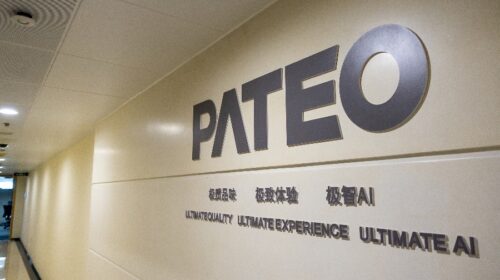With Post-IPO Profit Warning, Is Readboy Losing Its Gold Star?

Less than a month after its Hong Kong listing, the smart learning device maker admitted losing up to 45 million yuan in first half of the year
Key Takeaways:
- Readboy has warned it expects to post a loss of 40 million yuan to 45 million yuan in the first half of the year
- The learning device maker’s offline distribution network, which accounts for up to 90% of sales, took a hit from Covid store closures during the period
By Fai Pui
Continual school closures with a steady stream of Covid flareups in China should benefit anyone making study-at-home products like smart learning devices, right? Perhaps.
But that doesn’t seem to be the case for Readboy Education Holding Co. Ltd. (2385.HK), one of the country’s older makers of such devices with 23 years in the business. Despite its head-start over much younger rivals, the company has failed to seize on demand from parents keen to make sure their kids get the best and latest devices to keep up their learning at home during pandemic school closures.
The company was a leader in its class when it listed at the Hong Kong Stock Exchange on July 12. But it issued a profit warning last week before it could even issue its first financial report, admitting on Aug. 10 that it logged a loss of between 40 million yuan ($5.9 million) and 45 million yuan in the first half of this year. That marked a sharp reversal for a company that earned a net profit of 29.1 million yuan during the same period last year.
Like other startups going public, Readboy issued new shares to its pre-IPO investors, which had an impact on the fair value of its financial liabilities on its income statement. That resulted in a 47.8 million yuan fair-value adjustment loss, which was a major factor behind the profit warning. But investors shouldn’t be too concerned about that, since such a loss is considered a non-operational item, and thus does not reflect on Readboy’s core business.
Instead, investors were probably more disappointed by the company’s lackluster sales in the first six months of the year. To everyone’s surprise, the company’s revenue fell 26.9% year-on-year, or by 95.40 million yuan. The culprit was pandemic containment measures that dealt a blow to the company’s production and offline distribution, undercutting sales of its student tablets and wearable products. That came as a sobering reversal to anyone who was expecting a pandemic-related boom for the company.
At the same time, Readboy’s sales and distribution costs rose by 9.1 million yuan, or 29.4%, during the same period year-on-year due to the launch of new products and resulting bigger spending on advertising and other promotional efforts like on social media channels.
The profit warning didn’t seem to spook investors, with Readboy’s share price down by just a scant 0.3% the day after the warning. But its Tuesday close of HK$6.96 was down 8.4% from its HK$7.60 IPO price just a month earlier. And its first-day decline on its trading debut in July, combined with the fact that its price has only exceeded its IPO price on two trading days so far, speaks to lack of investor enthusiasm.
Third time’s the charm
The company first tried to list in Hong Kong last April but failed to make the grade. It made another stab in November and failed again, before finally succeeding on its third try in July. But the offering didn’t get a gold star from investors, with the shares only 70% oversubscribed and eventually pricing at the low end of their range. The stock ultimately earned poor marks with a 29% decline on its trading debut, though it managed to rebound after that, perhaps with support from the sponsors.
The going hasn’t been easy lately for private firms offering educational products and services. The K-12 extracurricular tutoring sector was decimated last year by new government policies aimed at reducing the homework burden on students. Having lost their main income source, some former tutoring agencies decided to try their hands at selling smart education devices, posing a major new challenge to established incumbents like Readboy. Feeling that pressure, Readboy has continued to rely on advertising and offline distribution to promote its products, and has spent heavily to expand its offline sales network. But such a strategy seems out of fashion in the digital age.
The company’s IPO prospectus shows it added 1,436 offline stores to its distribution network over the past three years, and by the end of last year it had 132 offline distributors and a total of 4,523 stores selling its products across 344 cities in China. During those three years, its operating revenue from offline distribution accounted for roughly 85% to 90% of its total, reflecting an overdependence on offline sales that made it vulnerable when many stores closed during the pandemic.
The company is exploring other revenue sources, including designing smart classroom solutions for schools, developing smart education devices for smart classroom management as well as providing an interactive and interconnected learning environment for teachers and students. But those businesses raked in just over 50 million yuan combined in the past three years, accounting for around 3% of total revenue – not particularly helpful in diversifying its revenue mix.
Challenge from new players
The company is facing new competition not only as a result of the education crackdown, but also from tech giants joining the fray.
Baidu (BIDU.US; 9888.HK) has unveiled its own Xiaodu learning tablet and Xiaodu smart dictionary pen, as well as an AI-enabled smart learning device and dictionary pen that are direct rivals to Readboy’s products. Zhangmen Education (ZME.US) has launched a smart device equipped with the latest learning materials for 10 subjects. Iflytek (002230.SZ) is also selling learning devices that can grade homework and tests. And Youdao (DAO.US) has launched several smart learning devices and AI dictionary pens. With so many rival products piling into the market, Readboy could face difficulty holding onto its market share.
In terms of valuation, Readboy isn’t cheap. Its price-to-earnings (P/E) ratio measured with last year’s profit was 24.6 times. It registered a loss in the first half of this year, though its adjusted net profit was somewhere between 15 million yuan to 20 million yuan. The company’s price-to-sales (P/S) ratio is 2.6 times based on last year’s revenue, placing it between a ratio of 1 for Youdao and 4.8 times of Iflytek.
Another overhang the company will face is the end of a lockup period next January for eight cornerstone investors who purchased 8% of its shares at the time of the IPO. Given the recent trend for many stocks to nosedive the day such lock-ups end, investors should be wary of owning Readboy’s shares when the upcoming witching hour arrives next Jan. 12.
To subscribe to Bamboo Works weekly free newsletter, click here






